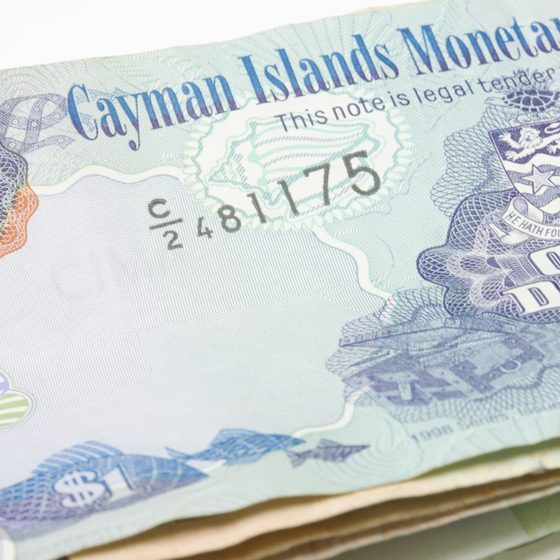Should I use an Offshore Corporation or Offshore LLC?
Which is better, an offshore corporation or offshore LLC? Does an offshore corporation provide more protection than an offshore LLC? What are the benefits of an offshore LLC compared to the benefits of an offshore corporation?
These are the questions I get every day, and the answer is not as simple as you might think. There are a number of important differences between an offshore corporation and an offshore LLC that you should take in to consideration when setting up your offshore structure.
First, there is no difference in the level of protection offered by an offshore corporation or an offshore LLC. They are equal in the eyes of the law. Offshore jurisdictions have always afforded them the same high levels of deference, and U.S. courts have generally maintained that a corporation is equivalent to an LLC for asset protection purposes.
When thinking about how to best use an offshore corporation or offshore LLC, your first instinct should be to put an active business in a corporation and passive investments in an LLC. Here is why:
Benefits of an Offshore Corporation
When you operate an active business in an offshore corporation, you maximize the value of the Foreign Earned Income Exclusion and can retain earnings in excess of the FEIE. This allows you to eliminate or defer U.S. tax on your offshore earnings. You accomplish this by:
1. Drawing a salary from the offshore corporation of up to the FEIE, about $98,000 for 2014, and reporting that salary on your personal return, Form 1040 and Form 2555. If a husband and wife operate the business, they can each draw out the FEIE amount in salary, and thus earn up to about $196,000 free of Federal income tax.
– The FEIE is actually $99,200 for tax year 2014 and 2015 has not yet been released. I usually round down to $98,000 to make the math easier to follow.
2. If your corporate profits exceed the FEIE amount, then you leave (retain) those funds in the corporation. If you take them out in salary, they will be taxable in the U.S. By leaving them in the corporation, you defer U.S. tax until they are distributed as dividends…or possibly as salary in future years.
3. Using an offshore corporation allows you to eliminate Self Employment or social taxes (FICA, Medicare, etc.), which are about 15% on your net profits and not covered by the FEIE.
These tax breaks come at a compliance cost: you must file a detailed offshore corporation return on IRS Form 5471 each year. Because this form includes a profit and loss statement, balance sheet, and many sub forms, the cost to pay someone to prepare it for you should be at least $1,250 per year.
Benefits of an Offshore LLC
The primary benefit of an offshore LLC over an offshore corporation is the lower cost of compliance. An offshore LLC owned by one person, or a husband and wife, will usually files IRS Form 8858, which is much easier to prepare and Form 5471.
Because of this lower (and simpler) filing obligation, offshore LLCs are the best option for passive investments. Whether you are living in the U.S. or abroad, there is no tax break for passive investments in a corporation (these breaks apply only to active businesses income). Passive income is taxed as earned, reduced only by the Foreign Tax Credit, so you might as well make it as easy as possible to report.
- The Foreign Tax Credit allows you to deduct any money paid in taxes to other countries on your foreign investments. It generally means you will not be double taxed on offshore transactions.
- The tax rules around foreign real estate and other passive investments can be complex. For a detailed article, please see my U.S. Tax Breaks for Offshore Real Estate.
An offshore LLC can’t retain earnings, so it is usually not the best entity for an offshore business. However, if the business will never earn more than the FEIE, then an offshore LLC might do just as well as an offshore corporation.
If you were to operate a business through an offshore LLC, you would report your total net profits on Form 2555, and if those profits exceeded the FEIE amount the excess would be taxable.
To put it another way, if your net profits are $200,000 and you are operating through an offshore LLC while qualifying for the FEIE, then you would get $98,000 in salary tax free and pay U.S. tax on the remaining $102,000. If those same profits were earned in an offshore corporation, you would draw out a salary of $98,000 and leave the balance in the corporation, deferring U.S. tax indefinitely.
If your business earns $50,000, then the full amount would be covered by the FEIE and no tax would be due. Likewise, if a husband and wife both operated the business which earned $200,000, each could draw out $98,000 tax free, leaving only $4,000 for the IRS to take a cut from. So, if your business will always earn less than $98,000 or $200,000, you might as well use an offshore LLC.
I estimate that the cost to have a professional prepare Form 8858 to be $690.00, and that, if you usually prepare your own personal return, then you can prepare 8858 yourself. In other words, if you are experienced in advanced personal return forms like Schedules C, D, or E, or you are used to dealing with complex K-1s, then you will have no problem with Form 8858.
So, when deciding between an offshore corporation or an an offshore LLC, if the structure will hold passive investments or a small business, then you might save a few dollars and simplify your life with an offshore LLC. If you will operate an active business that might someday earn more than $98,000 in profits, you should form an offshore corporation.











Leave a Reply
Want to join the discussion?Feel free to contribute!